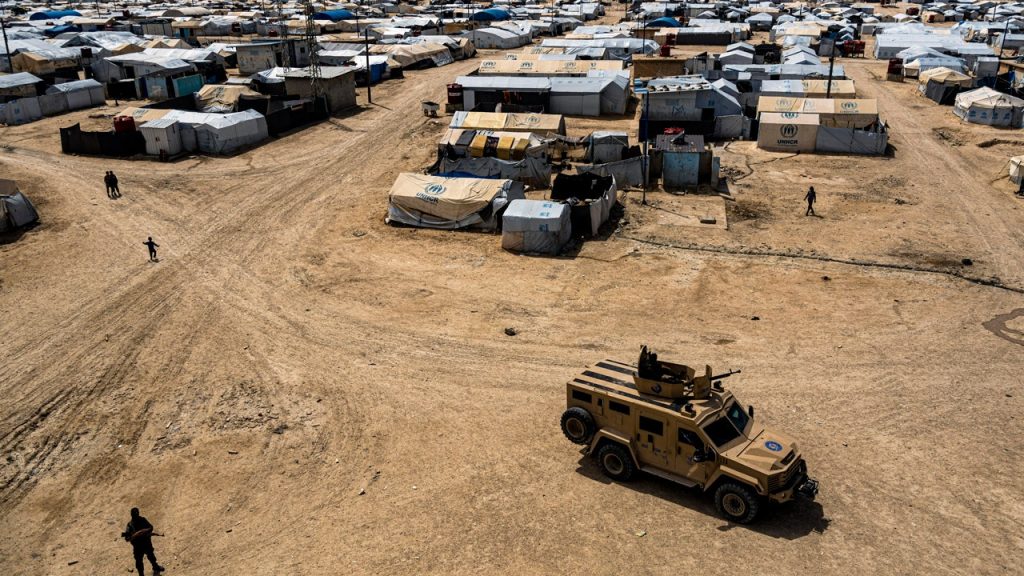Kurdish-led authorities in northeastern Syria have handed over 50 women and children, citizens of Tajikistan and family members of Islamic State militants, to a delegation from Tajikistan for repatriation back home. Most of these individuals were held in the al-Hol and Roj camps in northeastern Syria after IS was defeated. The Syrian Arab Red Crescent assisted in taking the women and children to the airport in Qamishli, where they boarded a plane to Tajikistan on Thursday. This repatriation comes after a recent attack on a Moscow concert hall by Tajik nationals claimed by IS, prompting Tajik authorities to bring back their citizens from conflict zones like Syria and Iraq.
Al-Hol camp, overseen by Syrian Kurdish-led forces, was once home to 73,000 people, mostly Syrians and Iraqis, but has seen a decrease in population to about 43,000 individuals. Among those held in the camp are IS militants’ wives and children, as well as supporters of the militant group. Tajikistan has stated that over 1,000 fighters from the country joined extremist groups in Syria and Iraq, including IS, at the height of the group’s power. One well-known case is that of Gulmurod Khalimov, a former officer in Tajikistan’s special forces who defected to IS and became one of its top military commanders before being killed in a Russian airstrike in 2017.
Thursday’s repatriation of Tajik citizens is not the first instance of this occurring. In May last year, 104 Tajik citizens were returned home, including women and children, and the year before that, 146 individuals were repatriated. Despite the challenges involved in repatriating individuals from conflict zones, countries like Tajikistan are working to bring their citizens back to prevent them from being further radicalized or being used for IS’s malicious intentions.
The repatriation of Tajik citizens from Syria is part of a broader effort by various countries to bring back their citizens who joined IS and other terrorist groups in conflict zones. These individuals, such as women and children in camps like Al-Hol, face uncertain futures and potential radicalization if left in such environments. By repatriating them, countries aim to reintegrate them into society, prevent further recruitment by extremist groups, and address the humanitarian concerns of those affected by the conflicts.
The cooperation between Kurdish-led authorities in Syria and countries like Tajikistan in repatriating citizens from conflict zones shows a commitment to addressing the lingering effects of IS’s rise and subsequent defeat in the region. By working together, these nations are taking steps to ensure the safety and security of their citizens, as well as to counter the ideologies and influence of extremist groups like IS. The repatriation of Tajik women and children from Syria is a positive development in the ongoing efforts to address the aftermath of IS’s presence in the region and prevent further radicalization of vulnerable populations.


